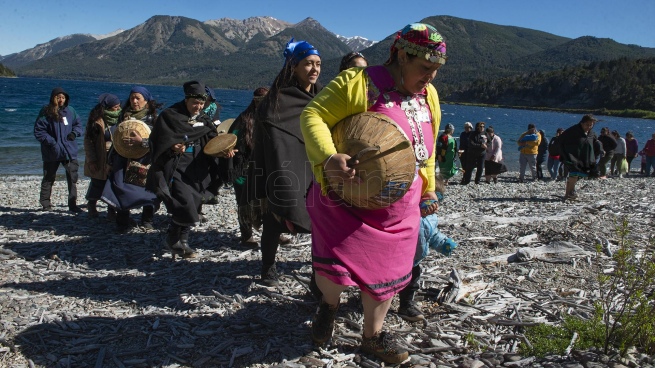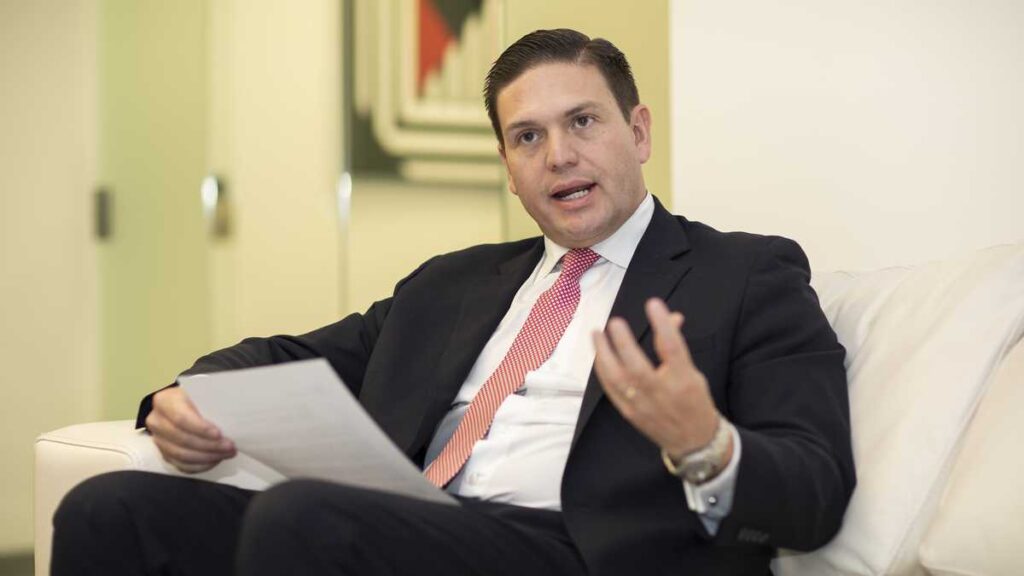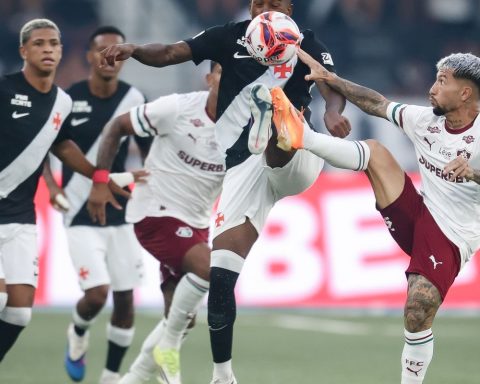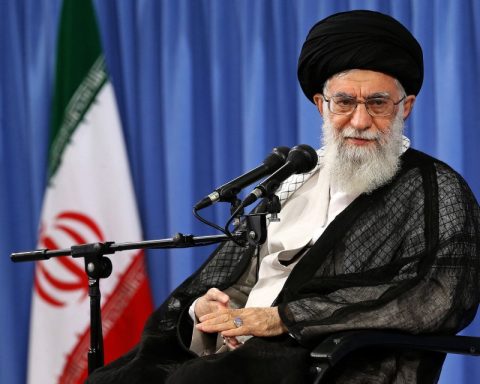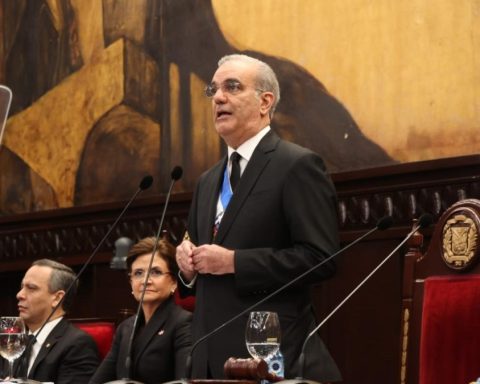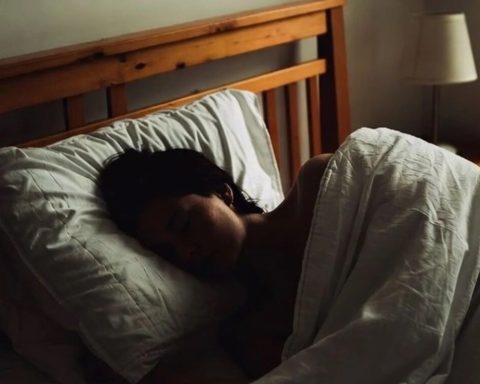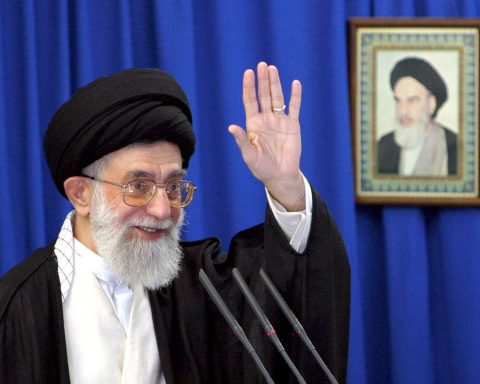Mapuche women promote intercultural education within the community in addition to promoting the training of promoters and Comprehensive Sexual Education in a context of actions with a gender perspectivewhen approaching Winoy Xipantu celebrationnext June 21, the new year in mapuche culture.
Marta Ranquehue, werken of Lof Millalonko Ranquehue, in Bariloche, Amancay Kintrikew, longko of Lof Kinxikew, located between Bariloche and Villa La Angostura, and Melisa Cabrapan, Mapuche social anthropologist, reflect on the gender roles within communities.
In September 2021, Amancay Quintriqueo assumed the role of longko of his communitythe Lof Kinxikew of Río Negro, located on the route that connects the city of Bariloche with Villa La Angostura.

The recovery of the community, in which nearly forty people currently live, has taken 18 years and is the first time that a woman assumes the tasks of organization. Amancay came to the community when her mother, born there but raised since she was a girl in the city of Bariloche, decided to return to the territory.
After a long process, Amancay was appointed longko and replaced her uncle, accused of sexual abuse and gender violence against members of the lof
“I have to replace a boss who has just exercised a very significant abuse of power, with psychological violence, abuse of minors, a man who has led the community for more than ten years,” Amancay Quintriqueo explained to Télam.and remarked that what surprises him most is “arriving at a traun – a meeting in which decisions are made within the community – and feeling that everyone is interested and that everyone is aware of what we are going to talk about, because they are people who were used to silence, to obey what a single person said and decided”.

More than six months after taking over as longko, Amancay is promoting intercultural education within the community and has a project to train Mapuche promoters “so that we can learn about our rights and accompany situations of violence.”.
It also promotes activities such as ceramics, so that the women of the Lof have tools for economic empowerment, as well as a meeting place.
“An observatory in defense of Mapuche childhoods was created and we considered that comprehensive sexual education (ESI) had to be part of the healing process that the community was going through”added Melisa Duarte Cabrapan, social anthropologist and member of the lof Newen Mapuwho accompanied the women of the Kinxikew lof.
“The relationships of domination were affecting inequalities. The sum of the precariousness of life, the territorial dispossession, the loss of connection with the territory and the forced proletarianization of many Mapuche families led to inequalities being accentuated,” said Cabrapan and recalled that “the women were taken as slaves to the cities while the man was left as a pawn. It can be built by returning to the ancestral if we take into account everything that happened in between”.
Patriarchy in communities
According to Cabrapan, based on the complaints in the community, a review and surveillance of situations of violence in other communities is being carried out. “There are demands that bring us together with those of feminism, but there are also effects that are different, for example, in rural communities,” the researcher clarified..
“U.S the patriarchy got fully into the communities and generated breaks in the organization. With the acculturation that criollismo brought after the invasion in Patagonia, came a machismo that is typical of the culture of the countrysidewhich today is deeply rooted”, explained Amancay Quintriqueo and recounted that “the elderly tell us about other types of ties, where there was complementarity and duality between men and women”.

Marta Ranquehue, werken of the Lof Millalonco-Ranquehue located on Provincial Route 82, between Lake Nahuel Huapi and Lake Gutiérrez, agrees on this point, and stated that “you have to build from affection, you cannot build otherwise.” .
His house, several blocks up the mountain, shares land with other houses and some pens for the animals. A wood-burning stove heats the dining room.
In the Ranquehue community there are no longkos, but decisions are made together, in the traunes.
“My role as a werken is to communicate, talk with other werken and recover Mapuche cultural aspects, such as the language, but I do not make the decisions. The requirement that there be an authority in each lof is something that comes from the State, before not all communities had a longko. We have that rebelliousness that the union decides for everyone,” explained Ranquehue.
Two years ago, a group of Mapuche women met in their house and a meeting space emerged that became essential for all of them. Although she does not consider herself a feminist, she highlights that differences occur when there is no respect between people.
“Lamien -sisters- who went through a lot of pain come. It arose naturally and a space of trust was given to talk about hidden pains that we had. The more we talk about the pain, the lighter it is,” said Marta, who now shares that space with his two daughters, who sometimes join the meetings.
“Being Mapuche is a decision that implies responsibilities, commitments not only with people but with the forces and beings that accompany us. There is a lot of ignorance about our culture because historically we have not had a voice,” added Ranquehue.
At the end of 2021, the Kinxikew lof received Mapuche and non-Mapuche women who accompanied the community during the process of denouncing the longko. The meeting was at Mañke Ruka, the community’s campsite on the Huemul Arm of Lake Nahuel Huapi.
“Defending the territory is our great objective, but to achieve it we must recover some dormant knowledge, truly live the values of the Mapuche people.. My priority is to strengthen the community circle, because without a solid base, external factors cannot be faced. A woman without territory loses her strength,” Quintriqueo explained.
